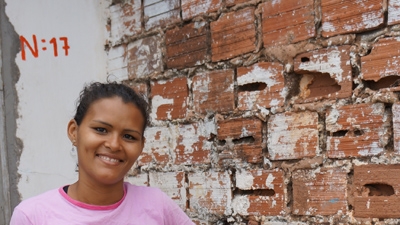Maranhão resident Welenice Lima, 28, is a single mother and unemployed. She lives in the state capital of São Luis in a neighborhood where, as she puts it, everything is lacking “especially security and recreation activities.” At home, at least, they have enough to eat, access to healthcare and her children, aged 6 and 7, go to school.
Every month she receives the Bolsa Família allowance from a Ministry of Social Development (MDS) program, which celebrates its 10th anniversary this year. The benefit is paid to 13.8 million families—whose income per person is below R$ 140 a month—under two conditions: the children have to attend school, and all need to visit the doctor regularly.
Brazilians assisted by the Bolsa Família are not alone. 129 million people from 18 countries within Latin America and the Caribbean —nearly a quarter of the population—are covered by similar initiatives.
In Brazil, the number of extremely poor people (about 16 million, according to the federal government) would be 33 percent higher were it not for Bolsa Família. Furthermore, 99 percent of the pregnant women, among participating families, are up-to-date with their prenatal care and school attendance among 97 percent of the children exceeds the required level.
“These programs are the primary instruments for protecting poor families, both because of the coverage and because of the coordination that they promote in every government,” concludes Concepción Steta, a Social Protection Specialist at the World Bank. “They help children and young people to have better nutrition, health, and education than their parents had.”
But at the same time, these programs pose a series of challenges, precisely because of the extent of the coverage and complexity of operations. The most significant being how to get families to use the benefit to shape their future.
Experts agree that the following are important:
- Increasing the quality of education and health services available to the population;
- Linking social assistance with the job market;
- Ensuring that vocational skills meet the needs of employers;
- Including women, the elderly, the disabled, etc. in those opportunities.

